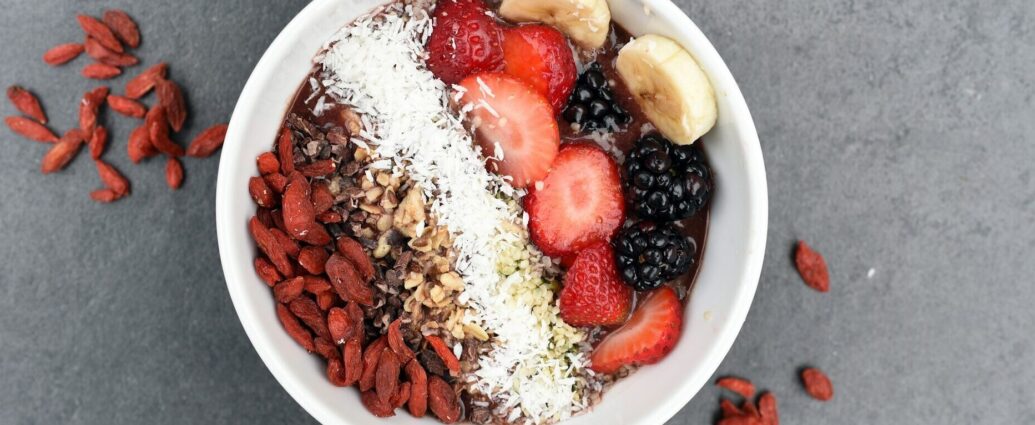Freddie Clemo
As health and well-being are all the rage, superfoods have surged in popularity. In 2022, the global superfood market was valued at around $162 billion. By 2028, it is estimated to climb to $226 billion. But what is a superfood, and are they beneficial to our health?
The term ‘superfood’ is largely unregulated. As a result, it is freely used as a marketing tactic to sell products under the guise of health benefits despite being banned by health and nutritional claims rules. Research has consistently shown that our diets as a whole are important, not a single superfood. But this hasn’t stopped many of us from falling for the superfood trend.
What Are Superfoods?
‘Superfood’ is a term ascribed to foods packed with nutrients and rich in minerals, vitamins, and antioxidants. The term includes whole foods like goji berries, pomegranate, and kale, as well as more processed supplements, such as green powders.

Are Superfoods Actually Beneficial?
Including superfoods in your diet can be beneficial if consumed alongside an otherwise balanced diet.
Superfoods are generally plant-based. It is well-documented that regularly eating fruits and vegetables lowers the risk of some illnesses and improves overall health. Compared to ultra-processed foods, all fruits and vegetables can be considered ‘superfoods’.
Sceptics have argued that superfoods undeniably contain some health benefits, but many are simply overhyped. Goji berries are revered for their supposed miracle health benefits, but you need to drink 13 servings of goji berry juice to get the same number of antioxidants in a large apple.
“Researchers argue so-called ‘miracle foods’ are used as a marketing tool because they catch people’s attention and sell magazines.”
Some products, such as green powders, are marketed as ‘superfoods’ but are more processed than fresh fruits and vegetables. Despite this, green powders have populated social media feeds, with influencers promoting their remarkable benefits.
While having your daily serving of nutrients in one drink promises ease, manufacturing the powders means nutrients and other beneficial elements, such as fibre, are lost. It is better for you, and cheaper, to consume vegetables and fruits directly.
The powders often contain beyond the recommended amounts of vitamins and minerals, particularly if you consume daily fruits and vegetables. While this is not necessarily harmful, your kidneys will break down and dispose of most of these extra nutrients, leaving you with very expensive pee.
Is It Just A Marketing Ploy?
‘Health-washing’ highlights how marketers employ tactics that convey a false impression of health to increase profits. Terms like ‘organic’ and ‘superfood’ fall into this category, as they are largely unregulated terms that sound healthy but don’t have an official definition or provide research to support the claim.
Researchers argue that so-called ‘miracle foods’ are used as marketing tools because they catch people’s attention and sell magazines. Supplement suppliers often sponsor research to prove that their products are superior in a bid to boost sales. These studies tend to be biased and inaccurate, as the reality is that we do not live on one single superfood. It would be inaccurate to look at the health benefits of one of these ‘superfoods’ without considering someone’s diet and other factors such as genetics and physical activity levels.
In her book Unsavoury Truth, Dr Marion Nestle further corroborates this theory, stating that the term ‘superfood’ is ‘nutritionally meaningless’. She argues that no single superfood will give you a healthy diet, as our overall eating pattern is much more important. She advised consumers to be sceptical about any one food product claiming to be a miracle cure to an illness or ailment.
https://www.tiktok.com/@bearenger/video/7001560089949654277?is_from_webapp=1&sender_device=pc&web_id=7363970585355290145
Should Foods Be Classified As ‘Good’ Or ‘Bad’?
The superfood debate begs the question of whether categorising foods as ‘super’ or ‘good’ can have a negative effect. Categorising food as ‘good’ or ‘bad’ makes nutrition should a ‘moral issue’. Certain foods are deemed better than others, reinforcing toxic diet culture.
While some foods contain more nutrients than others, eating only foods you perceive as ‘good foods’ can mean your diet isn’t as balanced as it could be.
“While higher socioeconomic groups are more likely to consume superfoods, they do so to distinguish themselves from lower socioeconomic groups.”
Furthermore, banning certain foods as ‘bad’ can lead to more temptation and the feeling of failure if you give in. This can have a hugely damaging effect on our relationship with food in general and may be a factor in the rise of orthorexia.
However, there is an argument to be made for promoting healthy eating. Recently, it was revealed over half of the average UK diet comes from ultra-processed foods. Heavy consumption of ultra-processed foods has been linked to over 30 health problems, including heart disease, cancer, and anxiety.
Are Superfoods Just A Status Symbol?
Consumption of ‘superfoods’ is closely linked to class and perception of class. While higher socioeconomic groups are more likely to consume superfoods, they do so to distinguish themselves from lower socioeconomic groups. Healthy foods have long been associated with those from higher socioeconomic groups. Healthy fresh foods are estimated to be more than twice as expensive per calorie as ‘non-healthy’ processed foods.
Consuming fruits and vegetables should be encouraged as part of a balanced diet. However, the marketing of ‘superfoods’ often leads people to spend excessive money on products that falsely promise miraculous results.
Featured image courtesy of Sambazon on Unsplash. No changes have been made to this image. Image license here.

